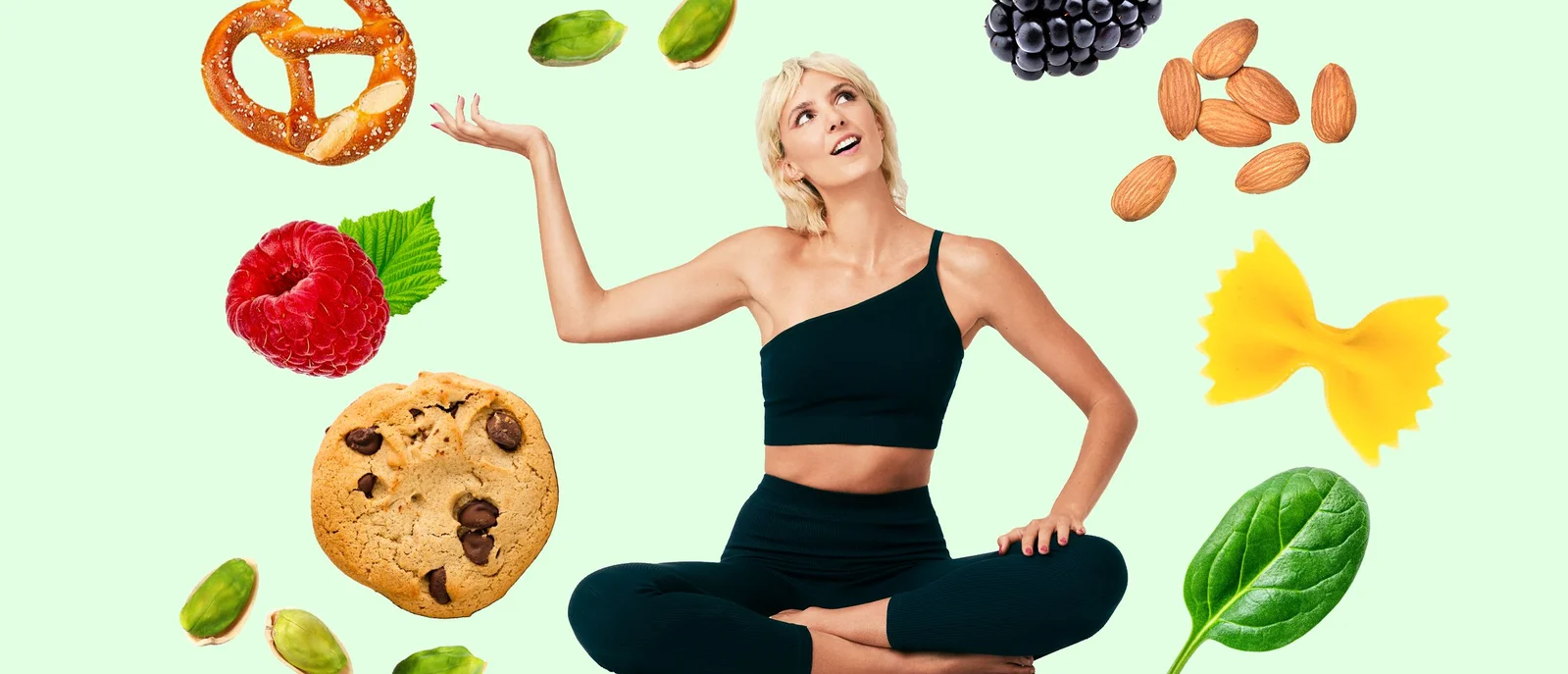So when I saw that science journalist, Max Lugavere, had Jessie on his podcast, The Genius Life, I knew I had to listen. In it, she shares her top tips for balancing blood sugar to maintain your best possible health, mood, and energy levels.
First, Jessie offered a quick refresher on how blood sugar spikes happen. Most of the food we eat is broken down into glucose, or blood sugar. Our body uses this blood sugar for energy, but when there’s too much of it in the bloodstream, it can raise blood sugar levels as much as 40-50 mg/dL. For reference, a healthy spike in blood sugar is considered to be under 20-30 mg/dL.
In people with diabetes, these spikes are caused by the body’s inability to use insulin, the hormone that helps properly process blood sugar. But even if you don't have diabetes, you’re likely aware of feeling the effects of sudden increases and decreases in your blood sugar levels after meals with high amounts of carbs and sugar. (2).
When your blood sugar is in flux all day, you’ll swing from feeling energized and satiated to exhausted and famished in the blink of an eye (3). Blood sugar dips can cause sadness, anxiety, stress, irritability, sleepiness, and brain fog (4).
Frequent blood sugar spikes can be dangerous to your long-term health: they can put you at risk for cancer or for insulin resistance, which can eventually lead to prediabetes. Type 2 diabetes can double your risk of heart disease and stroke (5, 6, 7).
In short: frequent blood sugar spikes are no fun. If you’ve ever felt all the life and energy drain out of you when the clock hits 2pm, you know exactly what we’re talking about. But it doesn’t have to be this way—if you eat intentionally, you can keep your blood sugar balanced for steady energy and mental clarity all day long.



